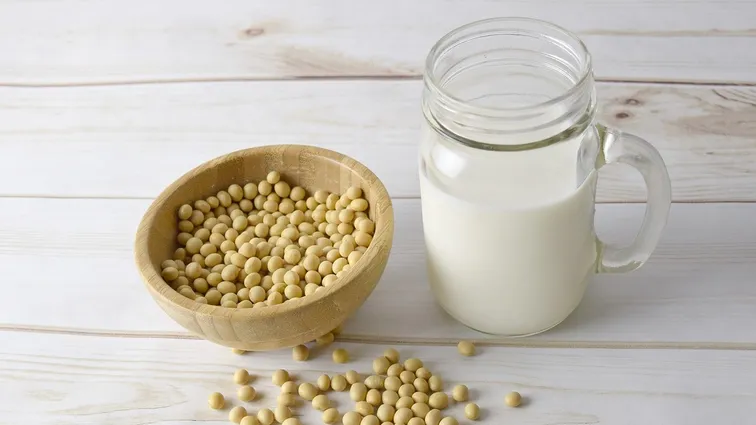According to information available, the new (revised) interpretation of EU legislation on the labelling of plant-based foods with the names of animal-based products is much stricter in the Czech Republic and Slovakia than in other EU Member States. The alleged purpose – consumer protection – is questionable in certain cases. Well, see for yourselves.
At the beginning of the year, the Ministry of Agriculture, in cooperation with the Czech Agriculture and Food Inspection Authority (CAFIA) and the State Veterinary Administration (SVA), issued an informative opinion summarising the strict interpretation of the Czech authorities on the labelling of plant-based alternatives to milk and dairy products, which has been applied for a long time. In addition, this year the State Veterinary and Food Administration of the Slovak Republic also adopted a similar interpretation, which has made it relatively difficult for sellers of plant-based food alternatives to operate in Slovakia.
Czech Republic
In its opinion, the Czech Agriculture and Food Inspection Authority considers it undesirable to label purely plant-based products with terms such as soy milk, oat cream, almond yoghurt and also non-dairy milk, vegan cream or cheese alternative. In its opinion, the labels imply or give the impression that the product in question is a product of the dairy sector although it does not contain milk components. CAFIA draws this conclusion from Regulation (EU) No. 1308/2013, which implies that the designation milk and designations used for dairy products are reserved for dairy products of animal origin only.
Furthermore, labels of some dairy products, such as Cheddar or Mozzarella, enjoy IP protection and are also defined in the internationally recognised Codex Alimentarius standards. Hence, according to the CAFIA, these are designations used for dairy products and their use for plant-based products that do not contain milk is considered a breach of Regulation (EU) No. 1308/2013.
Furthermore, the CAFIA applies a similar interpretation to plant-based alternatives to tuna, honey and eggs. Paradoxically, the opinion does not apply to the labelling of alternatives to meat and meat products even though the labelling of this category will be similarly clear to consumers as that for plant-based alternatives to dairy products.
One should respect the fact that some expressions are reserved, by law, for products of animal origin, although it is clear that the interpretation would not need to be so strict. For example, the designation plant-based alternative to clearly informs the consumer that the food is not of animal origin and instead, it is an alternative to it. It is difficult to imagine that a consumer who has bought a plant-based alternative to Eidam cheese would think that he has bought Eidam cheese made from cow milk.
During inspection, the CAFIA also takes into account the graphic image on the packaging, which should not suggest that the product is of animal origin. However, we believe that this should not prevent a food business operator from displaying the product the way it actually looks (even though it may look like an animal-based product, for example in the case of cheese substitutes which are very similar in appearance). However, the appearance may not be altered to resemble an animal-based product.
Contrary to this interpretation of the Czech Agriculture and Food Inspection Authority, the final and conclusive decision of the Regional Court in Ústí nad Labem disagreed with the CAFIA’s opinion and that of the Ministry of Agriculture. Last month, Soyka, a Czech producer of vegetable products from soybeans, won a dispute with the CAFIA over the use of an animal label (“soy milk alternative”) on its plant-based product. However, the public authority can be expected to lodge a cassation complaint. It will be interesting to see whether or not the Supreme Administrative Court will agree with the opinion of the Regional Court in Ústí nad Labem.
Slovakia
In Slovakia, the State Veterinary and Food Administration has a similarly strict interpretation, which, unfortunately, has not yet been summarised in any official document. However, it carries out inspections which suggest that its approach will not differ from that of the Czech inspection authority, at least not to the benefit of food producers. In some respects, the current practice appears even stricter (for example, the possibility to label a product as “flavoured” or to graphically represent a product in a truthful way).
However, the Slovak market is currently awaiting an official statement from the Ministry of Agriculture and Rural Development of the Slovak Republic, which should at least unify the authorities’ positions in this area. Hopefully, it will adopt as pragmatic a rule as possible. We will keep you updated of further developments.
Conclusion
We believe that from the point of view of producers or sellers of plant-based products, the strict interpretation by the authorities of both countries is rather unfortunate, as it may lead to a necessary change in the product packaging, which is very costly. What is more, the new product label may ultimately confuse the consumer more than the prohibited label, for example when soy yoghurt is replaced by soy dessert. It cannot be ruled out that where satisfactory labelling cannot be ensured, some products will not even be placed on markets. This raises the question of whether we have partly thrown the baby out with the bathwater.








